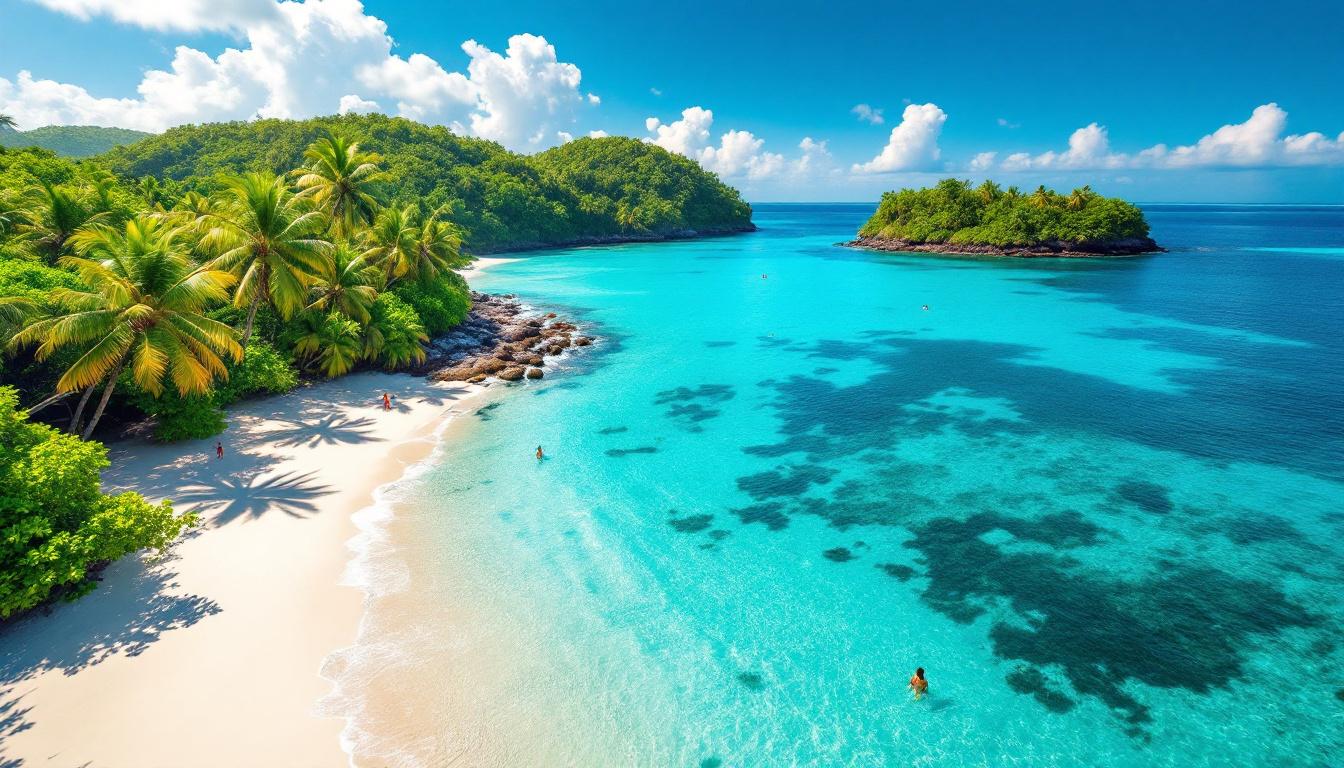While millions flock to overcrowded Caribbean beaches paying hundreds for resort access, Magens Bay on St. Thomas remains the only government-protected beach paradise where a simple $7 entrance fee grants access to what locals consider their most precious treasure.
This isn’t just another tropical beach. The Magens Bay Authority operates as a semi-autonomous entity, creating a unique protection model that no other Caribbean destination can replicate. Unlike Miami Beach’s city management or Cancún’s commercial chaos, this 0.75-mile stretch of white sand exists under specialized conservation governance.
What makes this protection so extraordinary? The government doesn’t just manage the beach—they’ve created a self-sustaining ecosystem that funds its own preservation through visitor fees, ensuring crowds never overwhelm this natural sanctuary.
The government protection model that changes everything
Self-sustaining conservation unlike anywhere else
The Magens Bay Authority operates independently from typical municipal beach management, partnering with The Nature Conservancy to maintain a 319-acre protected watershed. This collaboration creates environmental safeguards that commercial beaches simply cannot match, with dedicated funding for mangrove preservation and water quality monitoring.
Controlled access that preserves paradise
Unlike free-access beaches where crowds destroy the experience, Magens Bay’s $7 entrance fee creates natural visitor limits through parking restrictions and equipment rental controls. This fee-based system generates revenue for lifeguards, facility maintenance, and ecological protection—something no other Caribbean beach achieves through government oversight.
The calm waters advantage that families can’t find elsewhere
Natural protection from Atlantic swells
The bay’s unique geography, sheltered by Peterborg Peninsula and Tropaco Point, creates consistently calm conditions perfect for children and nervous swimmers. While typical Caribbean beaches face unpredictable swells, this government-protected bay maintains gentle waters year-round, except during major winter storms.
Sandy bottom safety without the snorkeling crowds
The clear, shallow sandy bottom eliminates the rocky hazards common at other Caribbean destinations while deterring snorkeling crowds who prefer coral reefs. This creates an ideal environment for families seeking safe swimming without competing with underwater tour groups that overwhelm popular snorkeling beaches.
Comprehensive facilities that put resort beaches to shame
Integrated ecosystem amenities
Beyond standard restrooms and showers, Magens Bay offers mangrove boardwalks, arboretums with 160 native species, and coconut grove trails within the same protected area. Miami’s South Beach lacks comparable nature-focused infrastructure, while Cancún’s beaches prioritize commercial development over ecological integration.
Self-funded services that guarantee quality
Kayak rentals, paddleboards, snorkeling gear, and lounge chairs operate through the Authority’s sustainable funding model, ensuring equipment quality and service reliability. Unlike beaches dependent on federal budgets or commercial operators, this self-sustaining system maintains consistent standards without external economic pressures.
Local protection efforts that keep authenticity alive
Community-supported conservation initiatives
Local residents actively support the Authority’s watershed management efforts, recognizing that controlled tourism preserves their community’s character. The 2018 Watershed Management Plan addresses upland development pressures, showing how government protection extends beyond the beach to safeguard the entire ecosystem.
Balanced tourism that respects island life
The $2 local entrance fee demonstrates respect for residents’ access while the higher visitor fee funds preservation efforts. This pricing structure creates sustainable tourism that benefits the community without overwhelming local infrastructure—a balance that free-access beaches cannot achieve.
Magens Bay proves that government protection can create paradise without compromise. While other Caribbean beaches struggle with overcrowding, environmental degradation, and commercial exploitation, this unique Authority model demonstrates how thoughtful governance preserves natural beauty for future generations.
Experience the only Caribbean beach where protection enhances rather than restricts your paradise. Visit this tiny Honduran island with 6,000 locals guarding the world’s second-largest reef for more protected Caribbean treasures, or discover this tiny Mexican island with clearer waters than Cancún. For overwater luxury, explore this tiny Caribbean archipelago with overwater bungalows in Panama’s secret paradise.
Essential planning information
How much does Magens Bay actually cost?
Entrance fees are $7 for visitors and $2 for locals, with additional costs for beach chair rentals and equipment. Parking is included in the entrance fee, making it significantly more affordable than resort beach access fees that can exceed $50 per day.
When should I visit for the best experience?
Early weekday mornings offer the most peaceful experience, avoiding weekend local crowds and cruise ship surges. The calm waters remain consistent year-round, though winter months may bring occasional North Atlantic swells.
What makes the water so calm compared to other Caribbean beaches?
The bay’s natural shelter from Peterborg Peninsula and Tropaco Point blocks Atlantic swells, creating lake-like conditions perfect for families. This geographic protection is unique among Caribbean beaches, most of which face open ocean conditions.
